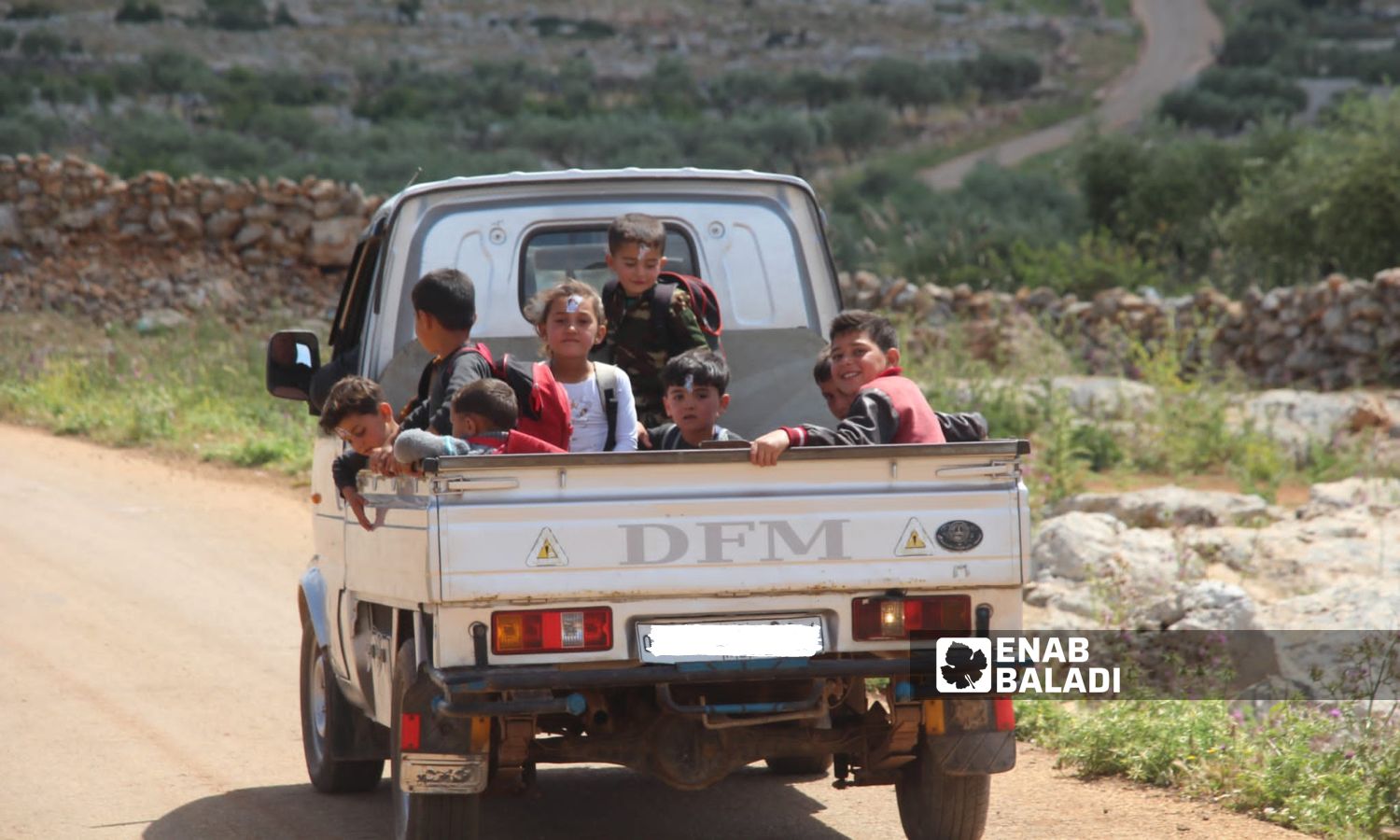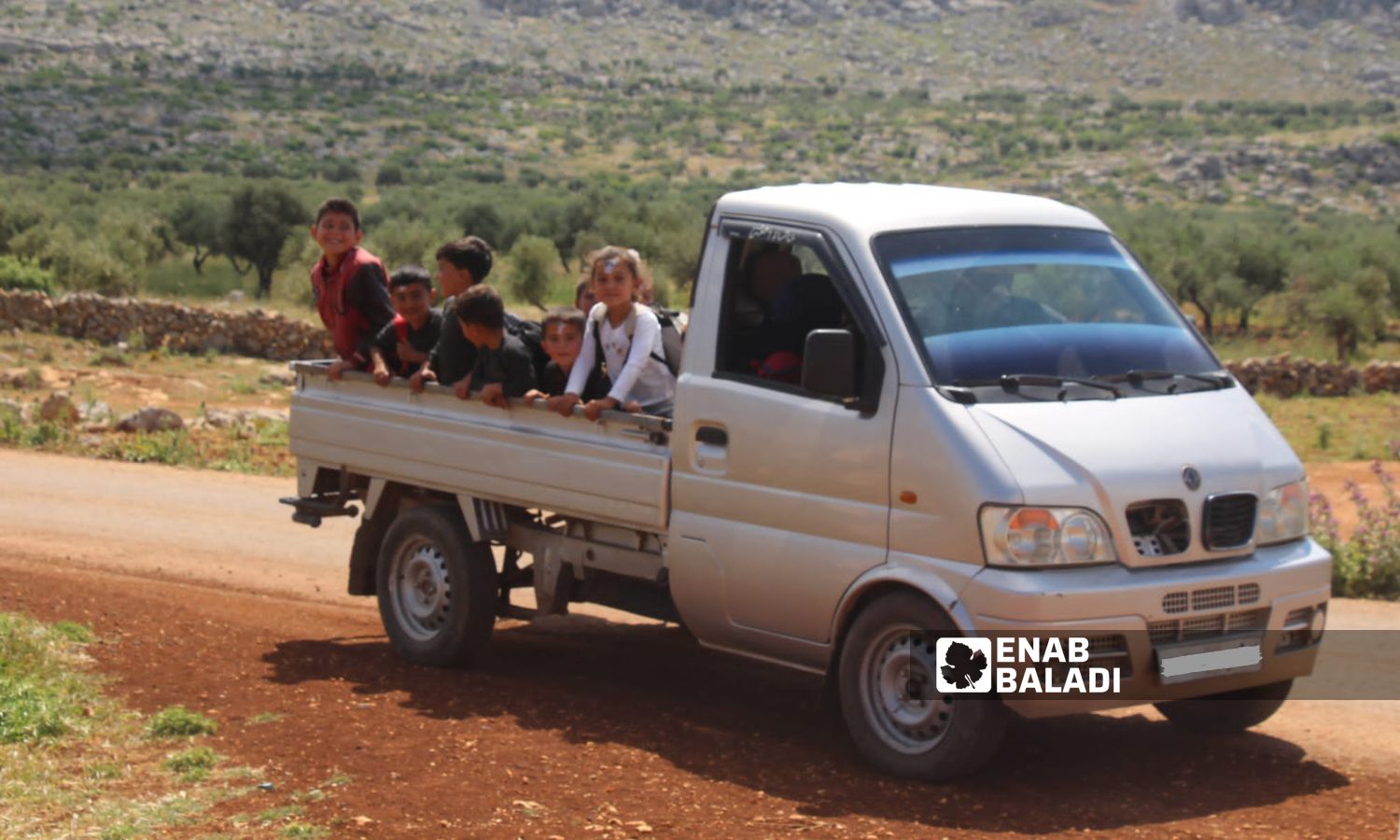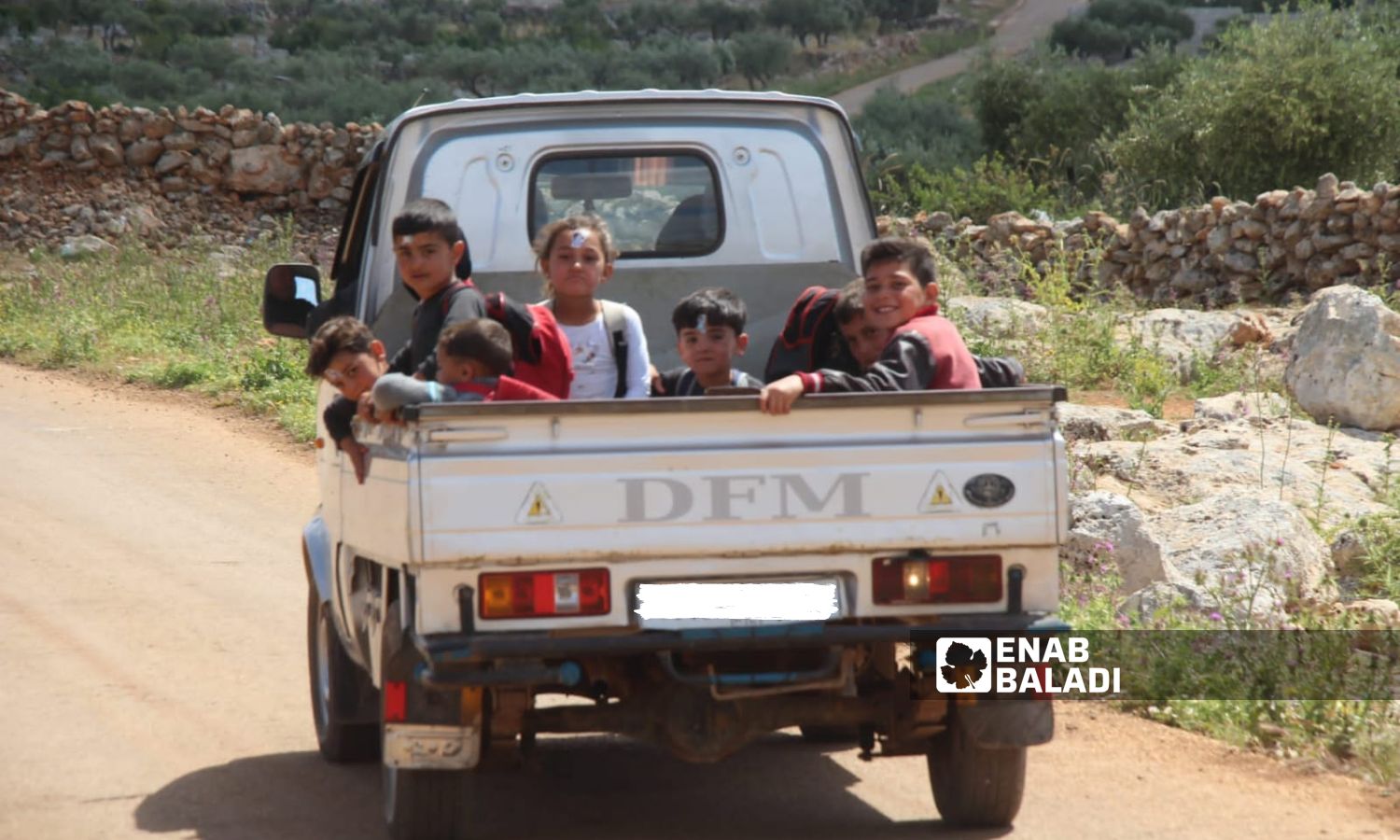



A video recording showing a car driver and an elderly man verbally harassing a displaced woman who was riding in the car with them sparked a wave of anger in northern Syria.
The woman asked the driver not to film her, but he continued and asked her sarcastically to find a wife for the elderly man in the camp where she lives. They offered her the option of leaving her husband and marrying the old man so that she could live in a building far from the poor living conditions in the camp.
On April 26, the General Security Service operating in the city of Idlib announced the arrest of the elderly man, followed two days later by the Turkish-backed Syrian National Army announcing the arrest of the driver in the countryside of Aleppo, amid promises that they would be brought to justice.
The harassment video opened the door to talk about transportation in northern Syria and the spread of the phenomenon of relying on public cars to reach the desired place and the dangers it poses to passers-by and the driver on roads that witness traffic accidents on an almost daily basis.
Mohammad al-Ahmad, who owns a cargo vehicle, told Enab Baladi that he transports dozens of people on a daily basis from the roads, pointing out that it is a common and widespread charitable work in the northern countryside of Idlib.
However, there are some mutual fears and problems regarding the transfer of people, such as exposure to cases of theft, harassment, or slander or the occurrence of a traffic accident, according to al-Ahmad.
For his part, Mohammad al-Ali has a van that goes out on a daily basis to his work in the town of Sarmada, north of Idlib. He told Enab Baladi that he transports people on his way amid hesitation and confusion about not stopping for them.
Al-Ali mentioned that one of his friends had previously transported people and was involved in a traffic accident, which forced him to pay blood money for a child who was riding in the car after he died in the accident.
He conveyed some accounts from what he heard that some women blackmail car drivers by threatening them to pay money before reaching a security checkpoint or to tell the checkpoint guards that the driver subjected them to kidnapping or harassment.
Khaled al-Talib, who lives in al-Bakri camp near the village of Deir Sita in the northern countryside of Idlib, told Enab Baladi that most of the camp’s residents send their children to the village’s school, which is about two kilometers away, via passing cars without knowing its driver.
He explained that children ride in the trunks of cars, which is the only way for parents, as there is no other option, either walking, which is exhausting for school students, or stopping them from studying.

Displaced children returning from school to their camp in the northern countryside of Idlib – May 1, 2023 (Enab Baladi/Iyad Abdul Jawad)
Northern Syria witnesses cases of missing and disappearing individuals by the dozens every month in circumstances that are not known in their entirety. Some of them are known for a ransom demand, and some of them become known when the person is released if he is detained by factions operating in the area.
The disappearance cases are not new to the northwestern regions of Syria, reinforced by the state of security chaos, despite the presence of the Syrian Salvation Government (SSG) and the Syrian Interim Government (SIG) and the presence of judicial, military and civil institutions operating under their umbrella.
The Office of Wounded and Missing Persons’ Affairs is active in the region and is concerned with documenting cases of missing persons in the areas controlled by both Hayat Tahrir al-Sham (HTS) and the Syrian National Army (SNA) through posts on an almost daily basis, asking to leave information when seeing a specific person, and publications to stop searching after finding on the missing person.
Enab Baladi has monitored that most of the posts are similar, bearing the same wording. Their content is that the missing person left his house towards a city, village, or camp, and there was no news of him after his departure.

Displaced children returning from school to their camp in the northern countryside of Idlib – May 1, 2023 (Enab Baladi/Iyad Abdul Jawad)
Towns and villages in northwestern Syria are witnessing frequent traffic accidents, resulting in deaths and injuries, due to the absence of strict traffic laws that regulate traffic, in addition to the absence of traffic lights and the ruggedness of some roads.
The Syria Civil Defense Agency announces on an almost daily basis the response of its teams to traffic accidents in the area, with recommendations to reduce speed, adhere to traffic safety procedures and traffic laws, and activate traffic regulations.
Hassan al-Hassan, head of the First Directorate of the Syria Civil Defense, told Enab Baladi that the rescue teams responded, from the beginning of the year until April 25, to 350 traffic accidents throughout northwestern Syria.
The accidents led to the death of four people and the injury of 277 civilians, including 82 children and 28 women. The largest percentage was in January, with more than 111 traffic accidents.
Al-Hassan pointed out that there are many reasons for these accidents, the first of which is speeding, non-compliance with traffic priorities, poor roads, children driving cars and motorcycles, and non-compliance with safety procedures and traffic laws.
Enab Baladi’s correspondent in Idlib, Iyad Abdul Jawad, contributed to this report.
if you think the article contain wrong information or you have additional details Send Correction